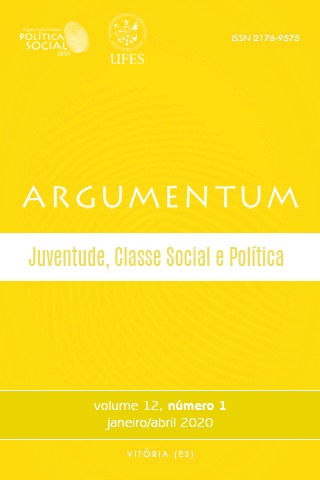The doctrine of integral protection in contrast to abandonment practices
DOI:
https://doi.org/10.18315/argumentum.v12i1.29070Abstract
This article analyzes social concepts and practices on social protection of children and adolescents. After three decades of the Brazilian children law, its operation finds resistance on several levels: cultural (overcoming derogatory views), institutional (redesign of institutions based on the perspective of protection), material (guarantee of resources expressed in own budgets, in trained professionals and in service units equipped for different activities), political (integrated protection network). In terms of social programs and policies, the contemporary scenario presents important challenges in terms of schooling, qualified professionalization of this segment, coverage of primary health care actions, exposure to urban violence. It is considered that, between the design of the law and the effective practices, there are many continuities and few breaks with the punitive model that results in abandonment and mistreatment by the State.
Downloads
Downloads
Published
How to Cite
Issue
Section
License
Copyright Transfer Agreement
As a condition for submission, the authors must agree with the Copyright Transfer Agreement, by checking the box after reading the clauses.
The author(s) (hereinafter "AUTHOR") hereby agrees to transfer, without any financial compensation, the property of copyrights regarding Argumentum, a journal of the Postgraduate Program in Social Politics (Programa de Pós-graduação em Política Social), Federal University of Espírito Santo (Universidade Federal do Espírito Santo) - Av. Fernando Ferrari, 514 - Goiabeiras 29075-910, Vitória (Brazil), (hereinafter "ARGUMENTUM"), according to the following terms and conditions:
1. I am aware of the terms of "Care Ethics Research Guide" described in the Policies section.
2. AUTHOR warrants to be the writer and copyright holder of the WORK submitted.
3. AUTHOR declares that the WORK does not infringe the rights of third-parties; that the distribution of images (if existent) was authorized; and that AUTHOR assumes total moral and property responsibility for their content.
4. AUTHOR agrees to transfer all the copyrights concerning the WORK to ARGUMENTUM, especially the rights to edit, publish, translate into another language, and reproduce it through any process or technique. ARGUMENTUM becomes the exclusive owner of the rights regarding the WORK, and any total or partial reproduction, in any other medium, printed or electronic, is strictly forbidden without prior written consent by ARGUMENTUM.
5. The copyright transfer is unpaid and, therefore, there will be no monetary compensation whatsoever by ARGUMENTUM in order to use the TEXT.

